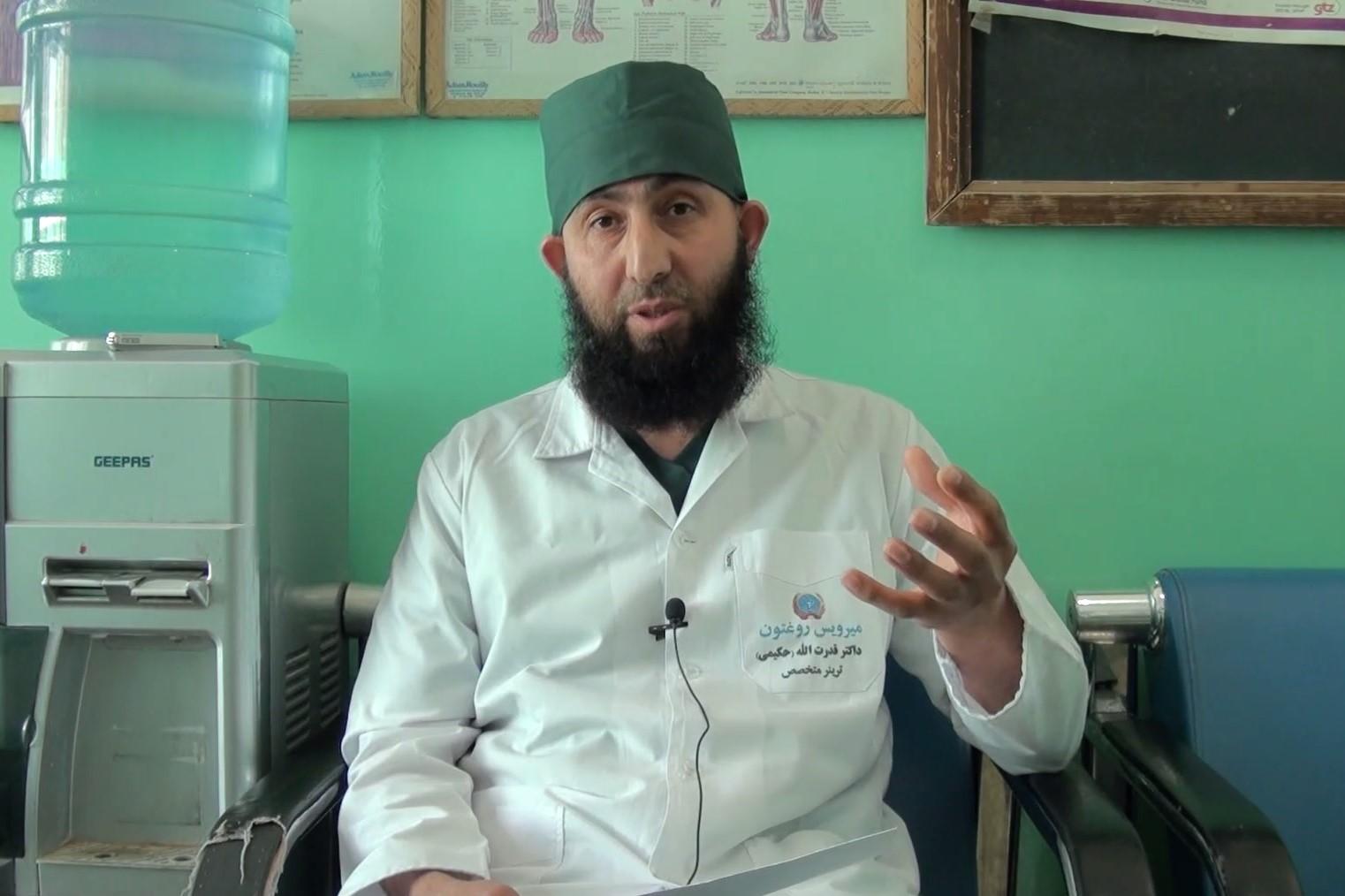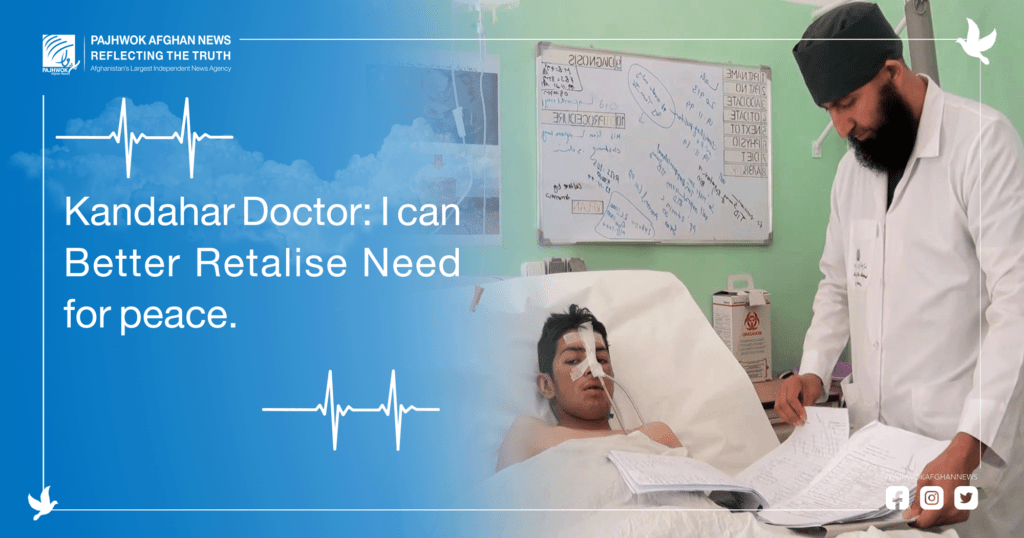KANDAHAR CITY (Pajhwok): A doctor, who has treated thousands of war-wounded people in the surgery ward of Mirwais Hospital in southern Kandahar province, says he no longer wants his compatriots to die in front of his eyes or be discharged with disabilities.
Yearning for peace, Dr. Qudratullah Hakimi has been working as a specialist trainer at the in the surgical ward of the Mirwais Zonal Hospital for the past 15 years. He has saved lives the thousands of the war-wounded people.
He said that peace was the right of every human being and every Afghan citizen aspires for it, because if there was peace, there would be no casualties, but progress, services and every member of the society would be confident in his affairs.
every member of the society would be confident in his affairs.
Commenting on the ongoing peace negotiations in Qatar and an upcoming summit in Turkey later this month, doctor said although he did not have much time to monitor media outlets due to his hectic schedule, he was optimistic about the process.
Hakim called on government and Taliban delegations to understand the pain and suffering of the Afghan people and make strenuous efforts for bringing peace and stability to the country.
Wearing a neat white overall, Hakimi told Pajhwok Afghan News: “As a member of a long-afflicted community, I am more aware of the ravages of war than anyone else and better understand the need for peace.”
With bitter memories of war victims etched on his mind, he no longer wants the war to continue. He treats wounded compatriots, including children, youth, women and the elderly on a daily basis. The doctor is impatiently hoping that one day the tragedy would end and peace would return to the country.
Mirwais Hospital is a major health facility operating in the volatile southern zone and receives an average of 10 war-wounded people daily. Last month, the doctor said, the hospital received 65 injured individuals –35 wounded by bullets, 15 by landmines and as many by airstrikes.
That was just the number of civilians wounded in fighting. Dozens of security forces also suffered casualties every month. The most painful thing, Hakimi noted, was that many lost their lives in front of his eyes. Several others were discharged with permanent disabilities, the specialist added.
He recalled a recent incident that happened in Nagahan area of Arghandab district. “A family in the village, days after having fled their home due to the conflict, wanted to bring home some essentials. One of the family members also took a woman, who was shot in the head in fighting in the area.”
The 21-year-old young woman was evacuated to hospital in critical condition, with a bullet lodged in the back of her head. She was left with a badly fractured skull, she was treated, however, she lost her ability to speak for the rest of her life.
Hakimi said they witnessed such harrowing incidents on a daily basis. Every moment of his work, he said, was a bitter memory, as many injured people lost their lives. Those who recovered also lost their eyes and limbs, he regretted. The tragedy is so massive that it could not be described in words, he remarked.
He said he would had time to do research as a doctor, if there was no war in the country, and make new plans for the treatment of patients, but now spent all his time treating war wounded.
Hakimi said although ordinary patients were brought to the hospital for medical treatment, most of the resources of the medical facility were consumed by the treatment of the injured.
He explained no one felt safe in the current bleak situation. Anyone leaving home in the morning was not sure whether they would return home alive, he said.
“Right now, as I speak to you, a man was killed in the city half an hour ago. How long will this situation continue? We are being killed so mercilessly.” While in hospital, the doctor often worries about his family and children.
War is the source of all misery and peace a divine blessing that every citizen aspires for, according to Hakimi. And it had wider effects. It was a direct threat to people’s lives and the main cause of crime, traffic accidents and other misfortunes. In the midst of chaos, he said, the law was not enforced properly.
For example, he referred to traffic accidents in the past one year alone, numbering 7,000, killing and injuring hundreds of people.
Notwithstanding the pain, sorrow and suffering caused by the situation, he claimed hopes for lasting peace in the country remained alive. He called for peace between the warring sides to end hostilities.
“We pray to Almighty Allah to stop the war and bring peace to our country. Our society badly needs peace,” he commented, urging scholars, people and families to pray collectively for stability in Afghanistan.
sa/mud







GET IN TOUCH
NEWSLETTER
SUGGEST A STORY
PAJHWOK MOBILE APP